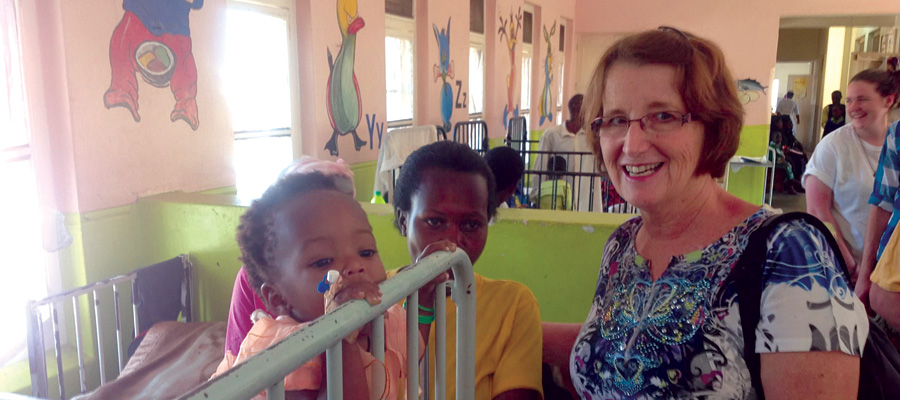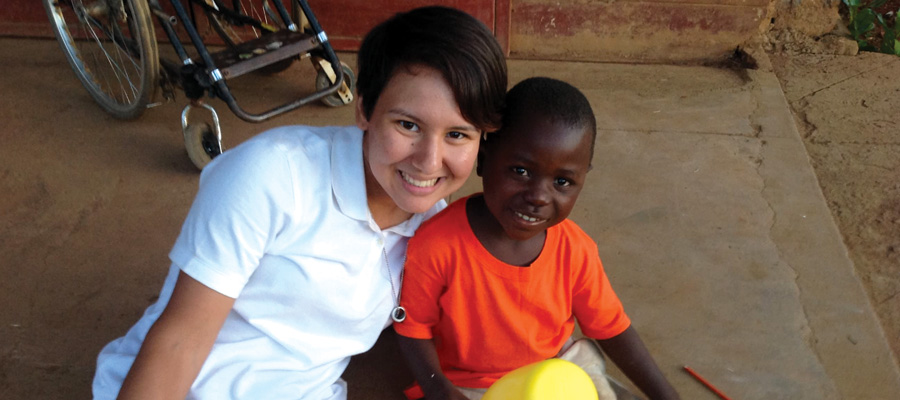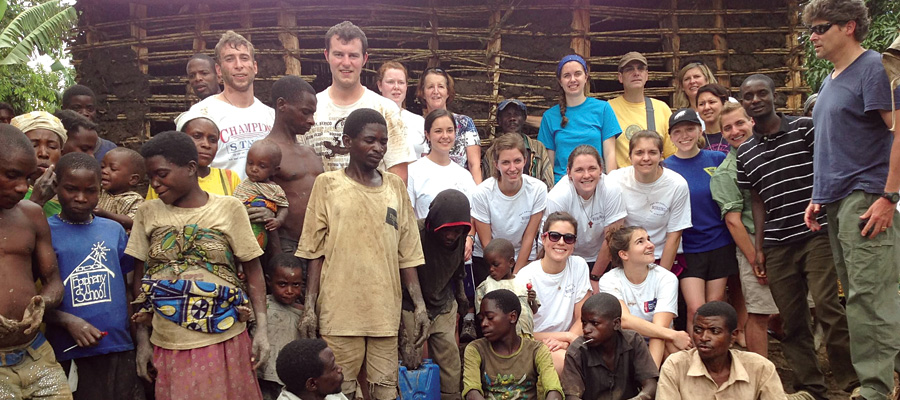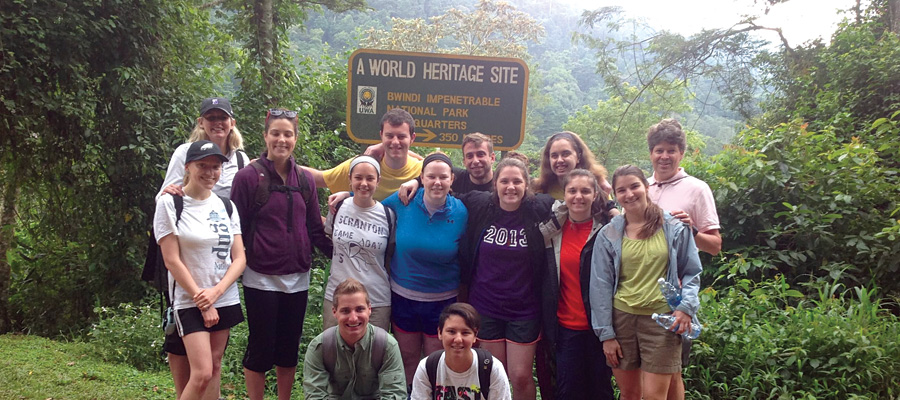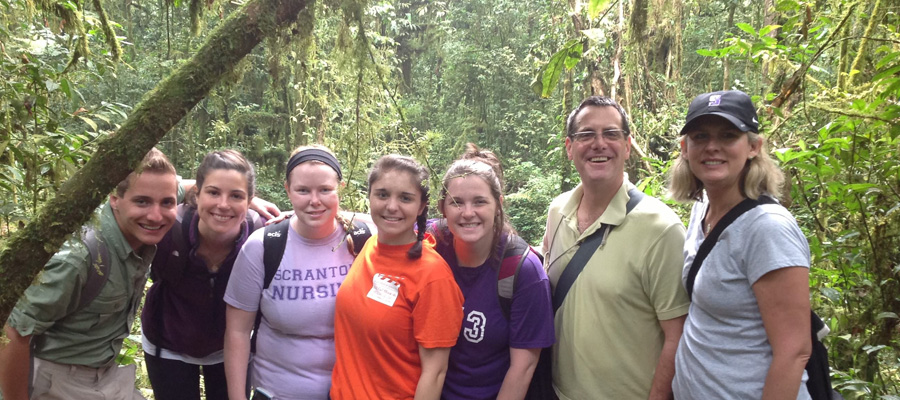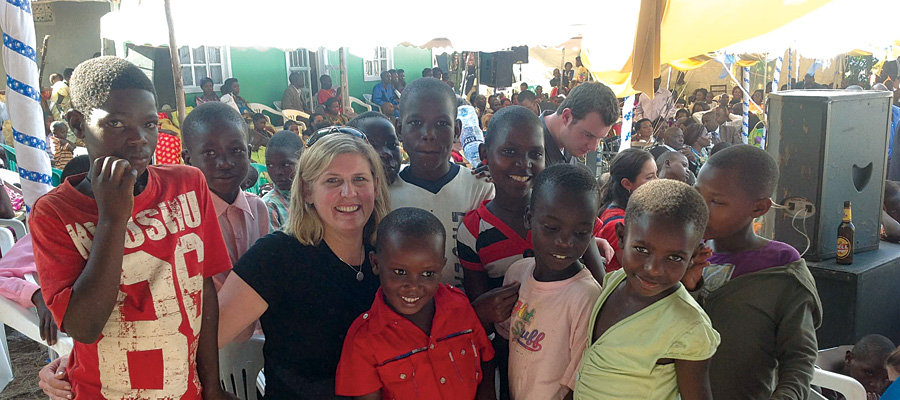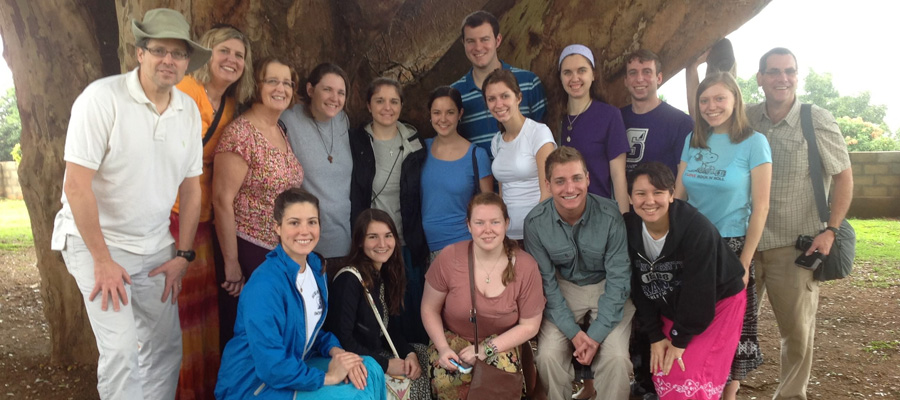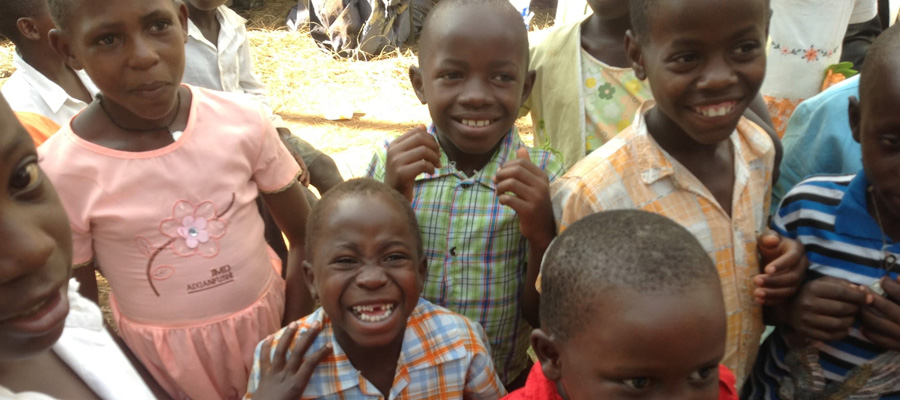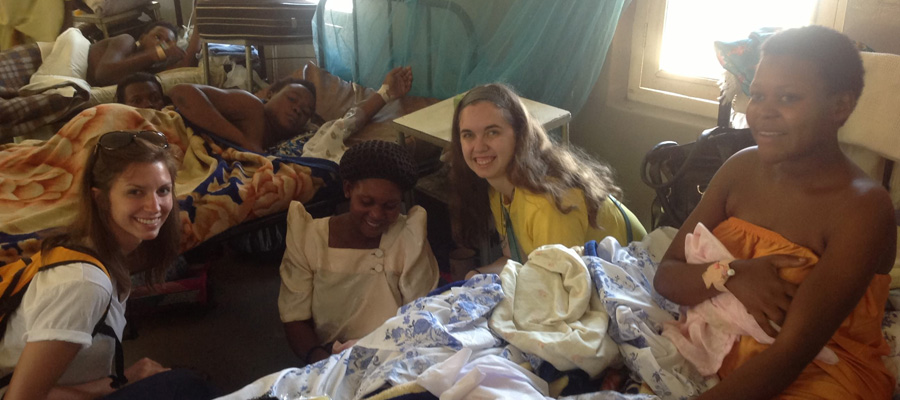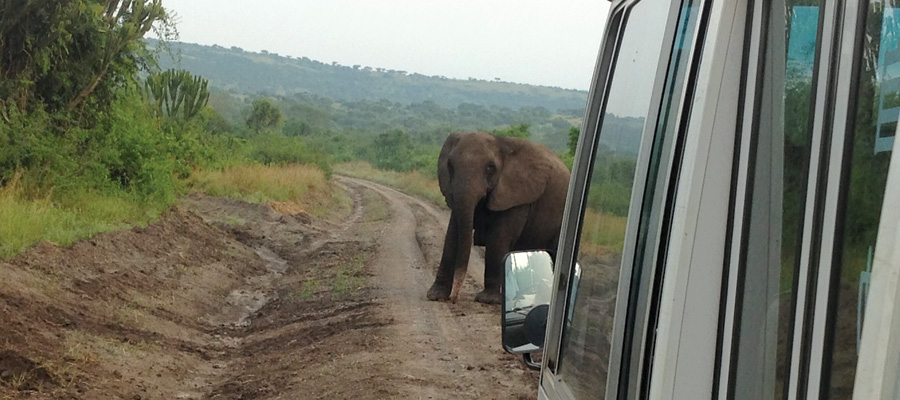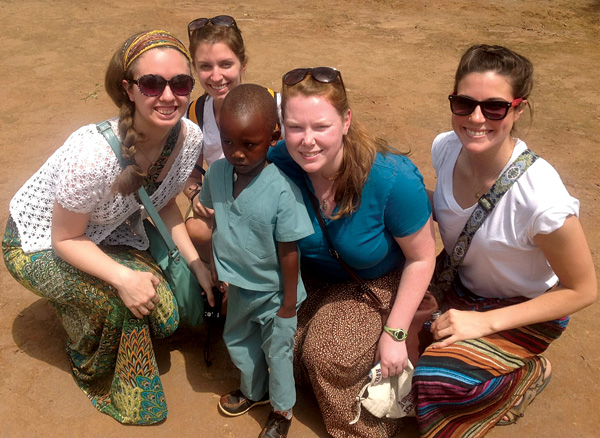Intersession Course Offers Revealing Look Into Ugandan Culture & Communities
Beds are numerous but space is scarce in the hospital in Masaka, Uganda. Patients suffering from illnesses ranging from malaria to AIDS lie or sit within an arm’s length of one another. Bed space is limited and some patients are assigned to small, thin mattresses on the floor.
There is no such thing as a private room here. Wards, located in areas about the size of four standard hospital rooms, house up to 50 people. Nurses provide only basic medical care. Family members gather closely around their loved ones, cooking their meals and helping them bathe.
This is the state of health care in Uganda and it’s unlike anything Katherine Juliano ’13 had ever experienced before. Juliano is a nursing student at The University of Scranton and one of a small group of students who spent 13 days in Uganda during intersession as part of the University’s “Christianity in Africa” course.
“We were warned it was going to be a difficult experience,” Juliano says. “I don’t think I’ll ever forget it.”
In the hospital, students weren’t allowed to touch patients, but they could smile and wave. The interaction was heart wrenching. At first, students witnessed people listless with fever or weary from the strain of chronic illness. Seeing patients in this state was difficult, especially for the six nursing students on the trip for they could offer little assistance. The most the students could do was be present.
Juliano remembers one particularly fragile woman. She tried to catch the woman’s attention by waving, but she didn’t respond. Eventually the woman slowly pulled her hand out from under her bed sheet and motioned slightly to say hello. “She was so weak laying on that bed,” Juliano recalls. “She couldn’t even smile. My heart just broke.”
After first touring the facility, students returned to distribute about 200 care packages – purchased through donations – containing small amounts of sugar, rice, soap and bread. Students were overwhelmed by the response. Patients were extremely appreciative and praised their visitors, smiling and clapping. Many students left wishing they could do more.
Christianity in Africa is a course designed to teach students the history of the Ugandan martyrdoms of the late 1800s, but it taught so much more. Students witnessed the grim reality of poverty and suffering and were forced to reconcile it with the life they otherwise know.
“It was such an in your face reality check,” explains Liz Piliero ’13, a philosophy major. “You think, I have a duty to stay there for them, smile for them, and give them whatever I could give instead of this hopelessness.”

Poor in Possessions, But Rich in Relationships
Charlie Pinches, Ph.D., professor and chair of the Department of Theology and Religious Studies at Scranton, has taken students to Uganda for the past eight years. Each year he refines the trip and course work. He adds new readings to offer perspective about the people of Uganda, and he develops new ways to foster better dialogue in the nightly discussion groups.
He also realizes nothing he does or says on the trip will have nearly as much impact as what the students see for themselves. “It’s the most transformative teaching I do and the teaching comes not from me talking, but rather simply showing,” Pinches says. “Nobody can picture it until they’re there.”
The lessons aren’t just from heartbreaking scenes like the one at the hospital in Masaka, though those are certainly part of the experience. Instead it’s the joy of the Ugandan people even in the midst of much sadness that leaves the most enduring impression.
Beyond the disease and poverty in Uganda is the innate and unshakable spirit of its people. Ugandans face uncertainty in their lives each day, but rather than wilt under the bleak outlook, they find happiness. Rather than focusing on possessions, Ugandans value relationships. They depend on each other. They find joy in what they do have and in the community surrounding them. This was evident to the members of the Christianity course.
The idea of catering to guests is important in Ugandan culture and the Scranton students saw it firsthand. In one stop, students were welcomed to a jubilee celebration for a Catholic sister who had given her life to teaching. They were seated close to the honored nun and embraced by a group of more than 300 partygoers who an hour before were complete strangers.
“They were so unconditionally loving, so happy, so hospitable, so welcoming,” Juliano explains. “It was totally life changing.”
This juxtaposition of poverty and happiness is something many Americans don’t know how to handle.
“When you first go, you’re hit in the face with the conditions,” Dr. Pinches says. “And if you stay a while you recognize how different their culture is and also how beautiful it is.”
Serving Others Through Teamwork
Watching the Ugandan nurses work, Cathy Lovecchio, Ph.D., assistant professor of nursing at Scranton, couldn’t help but notice how their work process differed from their American counterparts.
“When they do their dressing changes, they use honey to draw the fluid out of their wound,” Lovecchio notes. “In this country we’d never use a high sugar content-based product because here we feel that draws bacteria. But over there, it works.”
Dr. Lovecchio points this out not to cast judgment – quite the opposite in fact. Working without the benefits of modern technology and medicine, Ugandan nurses do more with less, she says. They compensate for a lack of supplies with a strong connection with patients.
In the past, the Christianity course was offered mainly to students in the College of Arts and Sciences and the Special Jesuit Liberal Arts (SJLA) Honors Program. However when Dr. Lovecchio was asked to chaperone the trip, she immediately inquired about including her nursing students. She felt her students could gain invaluable experience. “I thought it would provide a way to help these students develop their compassion,” Lovecchio explains.
The mix of students allowed each group to learn from one another. Nursing students offered medical knowledge, putting what the group saw in context. Likewise, the SJLA students, as well as Daniel Haggerty, Ph.D., associate professor of philosophy and SJLA director at Scranton, provided religious and philosophical insight during their nightly group discussions. “I was really grateful we were able to have that variety of opinion,” Juliano says.
The two groups also exhibited their strengths in service projects during the trip. Nursing students hosted an HIV prevention exercise in one of the towns they visited, while non-nursing students helped build a house overlooking the rainforest for a family of Batwa Pygmy people.
“It was absolute teamwork,” explains Pat Harrington, Ed.D., associate professor and chair of the Department of Nursing at Scranton. “We stood with them and worked, and at the end of the day the family had a new house to live in.”
An Experience That Won’t Be Forgotten
Upon returning from her 13-day trip, Piliero felt compelled to clean out her closet. All the old shirts, pants, shoes – anything she doesn’t use anymore – if it still had monetary value, it had to go.
Piliero has been determined to not let her experience in Uganda go to waste. It’s not enough to go on a trip and return to the status quo, she feels. There has to be a next step. For her, it’s selling clothes to raise money for Uganda. “The money can go such a long way there,” Piliero explains. “I think I have enough clothes to pay for like 10 people’s education.”
Piliero says she’s privileged to have gone to Uganda and, while she feels they accomplished a lot, she’d like to return and complete a larger project.
She isn’t the only student affected by the Christianity in Africa course. One student on the trip decided she was going to dedicate her life to service. Another said the experience inspired her to become a better Christian.
Before the trip Juliano raised money through her church to pay for expenses. She donated her leftover money to the people of Uganda, but she too feels the need to give back.
The future nurse says the experience in the hospital in Masaka is an experience that will push her professionally. “I’ll always have this drive to do something about it, even if it’s not at that hospital,” Juliano explains.


